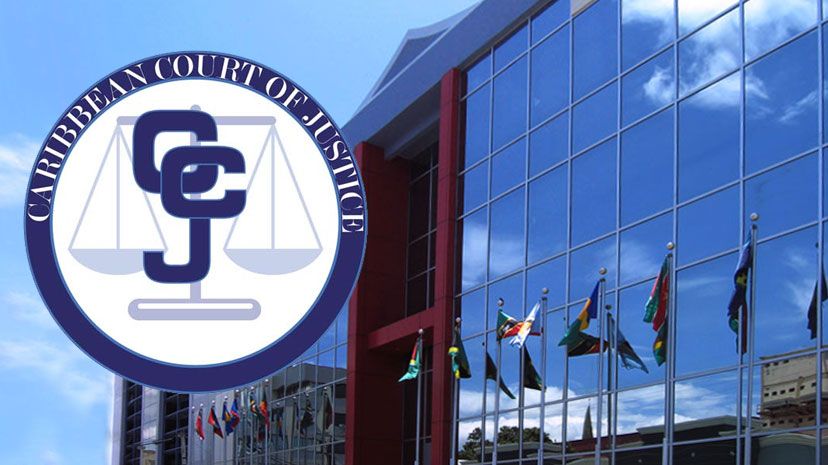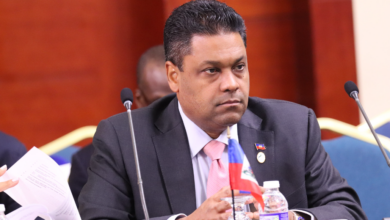KINGSTON, Jamaica January 7, 2015- As the Parliament continues its debate on whether Jamaica should establish the Caribbean Court of Justice (CCJ) as its final court of appeal, almost half the respondents in a recent Don Anderson poll, commissioned by the RJR Communications Group, feel the country should do away with the Privy Council and establish the CCJ.
The poll result indicates that “49% overall said that they agreed that we should do away with the Privy Council and have the CCJ as their final Court of Appeal compared to 25% who disagreed…there is strong support for it, if not the majority,” said Pollster Don Anderson.
The poll was conducted between November 29 and December 8 last year.
More than half of the respondents in the poll also indicated that they understood what the Caribbean Court of Justice means to Jamaica. They also said there should be a vote as to whether the CCJ should be the final court.
Concerning regional travel, most persons said there is a deliberate policy to make travel difficult for Jamaicans.
“56% of all those persons interviewed felt it was a deliberate policy on the part of those Caribbean countries, whereas 19% did not think it was a deliberate policy – 25% weren’t so sure,” he added.
On November 25 last year, Prime Minister Portia Simpson Miller opened debate on the CCJ Bills in the House of Representatives appealing for bi-partisan consensus in support of the move by the Government to adopt the Caribbean Court of Justice (CCJ) as Jamaica’s final appellate court, which she says will ensure access to justice for all Jamaicans.
“It’s about Jamaica’s identity, the exercise of its sovereignty and the protection of the legal rights of its citizens,” Mrs. Simpson Miller said pointing out that the Privy Council is fundamentally inaccessible to the vast majority Jamaicans.
“Litigants and their Jamaican lawyers need visas to travel to the United Kingdom (UK). Visas are not available or granted as a right. Jamaicans are the only people in the entire global structure, who are obliged to seek and obtain visas to access one of the courts.”
She further argued that the costs of retaining UK lawyers for representation in appeals are too high for the vast majority of Jamaicans.
The CCJ, on the other hand, is so designed that it travels to its member countries to hear cases on home soil.
Commenting on the Opposition’s position that Jamaica should establish its own appellate court, Mrs. Simpson Miller argued that “it would be misguided and unwise to have a new home-grown organ as our highest court, without the consistent and predictable budgetary support available to do so.”
“Everyone knows and accepts that the Jamaican court system is already substantially underfunded, and the fiscal reality that gives rise to this understanding is not likely to change anytime soon,” she noted.
In contrast she said the CCJ is fully funded and easily accessible to Jamaicans and will provide further benefits because of its accessibility to Jamaicans.
Concerning a referendum – the Prime Minister said the matter of the CCJ, as Jamaica's final Appeal Court should not be the subject of a referendum.
She said a referendum is a political process and cautioned that issues concerning the countries that were formally a part of the British Empire, have moved away from the Privy Council. These include Canada, Australia, New Zealand, Barbados, Guyana, Belize and Dominica. “Not one of them sought to have the issue put to a referendum,” she said.
The government needs the support of the JLP for passage of the bills in both Houses of Parliament to secure passage of the three bills.
“I believe that this House has another opportunity for bipartisan consensus in the interest of the people of Jamaica. The Senate will also have the same opportunity on this matter,” she stated.
The Bills being debated are: An Act to Amend the Judicature (Appellate Jurisdiction) Act, which seeks to amend the Judicature (Appellate Jurisdiction) Act, to repeal provisions for appeals to the Privy Council, and exclude any appeals to the Privy Council instituted prior to implementation of the CCJ; An Act to Amend the Constitution of Jamaica, to amend Section 110 of the Constitution to repeal provisions relating to appeals to the Privy Council and replace them with provisions establishing the CCJ as Jamaica’s final court; and An Act to make provisions for the implementation of the agreement establishing the CCJ as both a court of original jurisdiction, to determine cases involving the Caribbean Community (CARICOM) and International treaties, as well as a superior court of record with appellate jurisdiction.
After the Bills have been debated in the Lower House, there is a time period of three months before a vote can be taken. The Government needs a two-thirds majority vote in both Houses of Parliament to pass the Bills.






